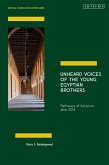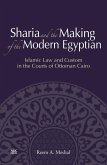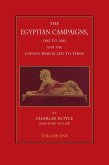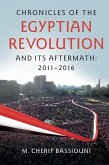In this new study, the author examines sijills, the official documents of the Ottoman Islamic courts, to understand how sharia law, society, and the early-modern economy of sixteenth- and seventeenth-century Ottoman Cairo related to the practice of custom in determining rulings. In the sixteenth century, a new legal and cultural orthodoxy fostered the development of an early-modern Islam that broke new ground, giving rise to a new concept of the citizen and his role. Contrary to the prevailing scholarly view, this work adopts the position that local custom began to diminish and decline as a source of authority. These issues resonate today, several centuries later, in the continuing discussions of individual rights in relation to Islamic law.
Dieser Download kann aus rechtlichen Gründen nur mit Rechnungsadresse in A, B, BG, CY, CZ, D, DK, EW, E, FIN, F, GR, HR, H, IRL, I, LT, L, LR, M, NL, PL, P, R, S, SLO, SK ausgeliefert werden.









